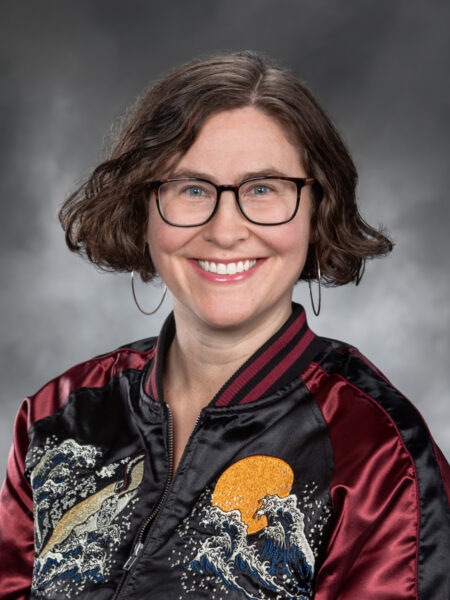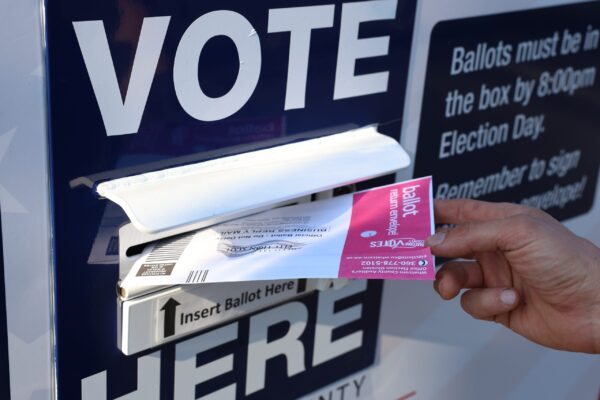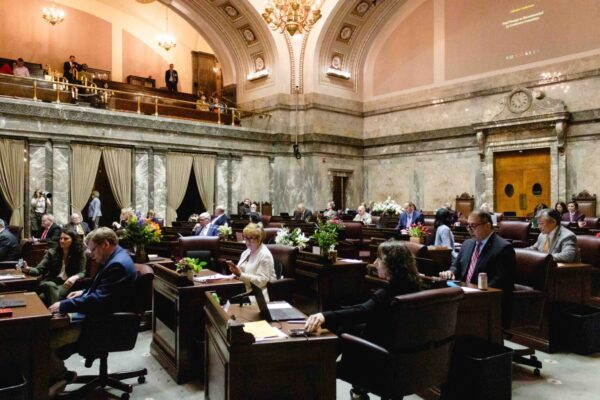Washington Conservation Action (WCA) is committed to amplifying the voices of our partners and of our communities. In that spirit, we are beginning a series of Q&A blogs featuring candidates and elected leaders connected to our organization from around the state.
In Washington’s newly redrawn 14th legislative district, Maria Beltran seeks to flip a district long held by Republicans, bringing pragmatic change and environmental leadership to Central Washington. Born and raised in Yakima by parents who are agriculture workers and union members, Beltran was the first in her family to graduate from high school and from college. If she wins in November, Beltran would be the first Democrat to win the 14th in 30 years. She would also become the first Democratic Latina from Yakima to serve in the Senate, and the youngest sitting Senator, at 31 years old.
This weekend, she received the coveted endorsement of the Yakima Herald-Republic, writing, “But things are changing in the 14th District which, following the 2020 census and a Voting Rights Act lawsuit, has been significantly reshaped. Its boundaries now include east Yakima, Sunnyside, Granger, Mabton, Grandview and the majority of the Yakama Reservation. And here comes Maria Beltran. In our minds, Beltran’s life experiences give her the slightest edge in this race.”
Maria began her career as a community organizer in her hometown, and over the last decade, she has helped candidates up and down the ballot across the entire state get elected and help constituents. Maria’s experience spans all levels of government with a blend of policy and campaign experience, including for U.S. Rep. Kim Schrier and State Rep. Debra Entenman.
In 2020, Maria became the youngest board president of OneAmerica, a statewide non-profit organization that advocates for immigrants and refugees. She recently completed AgForestry, a leadership program for individuals in the agriculture, forestry, and natural resources industries. As a member of the LGBTQ+ community, she believes everyone has the right to be safe. Beltran says she wants to represent those who have been left behind. WCA has endorsed Beltran.
You’ve worked as a political organizer and as a staffer for both state representatives and members of Congress. Why did you decide to run for office yourself?
I am running for office because I noticed that no one at the state, federal or local level looked like me or had my lived experience. I wasn’t seeing the change our community deserved.
Growing up, I had health insurance, but my parents did not until the Affordable Care Act. Even though my parents worked a lot, we still grew up in poverty. My parents worked and tried their best, but we had food assistance, housing assistance, I know what it’s like to struggle. I also know what it’s like to break that cycle of poverty.
I’m excited to run and represent this community where I was raised, and I want kids to have the same opportunities I had and more. Our education system needs to be fully funded. We need to have more resources for kids. We must continue to fund apprenticeships, to work with Tribes, and to work on climate issues. People must have good paying jobs with benefits and healthcare.
How did WCA’s endorsement affect your campaign?
I think it’s sending a clear message: Who’s going to be the person in Olympia who will make sure you have clean water, and clean air during the summer?
People assume that everyone has access to clean air and water, but not everyone does. In Mabton, they haven’t had clean water for years. This summer, our district has had multiple fires going on at once, and folks had evacuation notices telling them to leave. We want to proactively do the right thing. We can’t accept the status quo, and just say, “Oh, it’s just fire season.” We need to change that mentality. We need to ask, how can we be prepared? What about the future? This can’t continue to be our normal.
WCA tries to make the connections between environmental harm and racial injustice, between systems that harm the earth and that also create economic and social injustice. How do you see that playing out in the 14th district?
I think that historically, low-income folks, people of color, our Tribal brothers and sisters, we’ve been disproportionately affected by these issues: water quality, air quality. Where you live determines your quality of life. I’ve seen it firsthand, not being able to breathe in the summer. My parents couldn’t afford childcare, so in the summers, I would go out with them, help them pick. Just spend one day out there, with the dirt, and the pesticides. if you’re doing that for years, it can cause health issues. I want to be able to be the voice of those people. I want to work with everyone, to make sure we find common sense solutions for everyone in the district.
How has your lived experience – being the daughter of farmworkers, being the first in your family to graduate from high school and college – informed your politics?
I know we can do better. I’ve seen it. I think I’m in a unique position, I have lived experience that so many people in the community have lived through. To that, add my professional experience: Olympia, Congress, the agricultural community. When I was younger, I was frustrated. I was upset that my parents struggled to put food on the table. Those hardships ground me and inspire me to help others.
If you’re elected, what will be your first environmental projects and/or priorities?
I’m excited to work on apprenticeships and technical schools.
When it comes to the environment, addressing wildfire season, working with agriculture, working with farmworkers, working with Yakama Nation, working with DNR to come together and make some major investments in central Washington, to address wildfire season.
We also need to make sure we are respecting treaty rights, respecting not only the Yakama nation, but Tribes across Washington, making sure they have access to water and fish, and working to protect their sacred lands.
I want us to make investments in water infrastructure, not only in my district but across the state, to ensure clean and drinkable water for people and for industries. I look forward to being a bridge maker between different industries, a generational change for people down here. For environmental justice, that would be important.
I was an environmental student at Gonzaga University. I want to make sure the next generation knows what it means to have clean water, to have access to beautiful landscapes, and to understand why things like recycling are important. I want them to make those connections.
What do you see as your district’s most pressing economic issues? How do these relate to economic and racial justice?
I think agriculture is the backbone of our local economy. Climate patterns are changing. Seasonal work is becoming more limited and more intense. Cherry season used to be longer. If we get less snow, then there’s less water, these patterns change how we harvest. Sometimes it doesn’t get warm enough in time for the cherry trees to blossom. And then in the summer we have 100-degree weather or more. If you’re out there picking cherries or pears or apples, it’s a health issue. You layer in the smokiness. It affects farmers, farmworkers, people in construction.
What’s your favorite way to get outside?
I like hiking. Most of my time this year has been knocking doors across the district. My friend group from across the state came here during the primary to help make calls and knock doors. We used to hike Cowiche Canyon, but because of my campaign schedule I haven’t been able to hike as much.
Your donation ensures a sustainable future.



